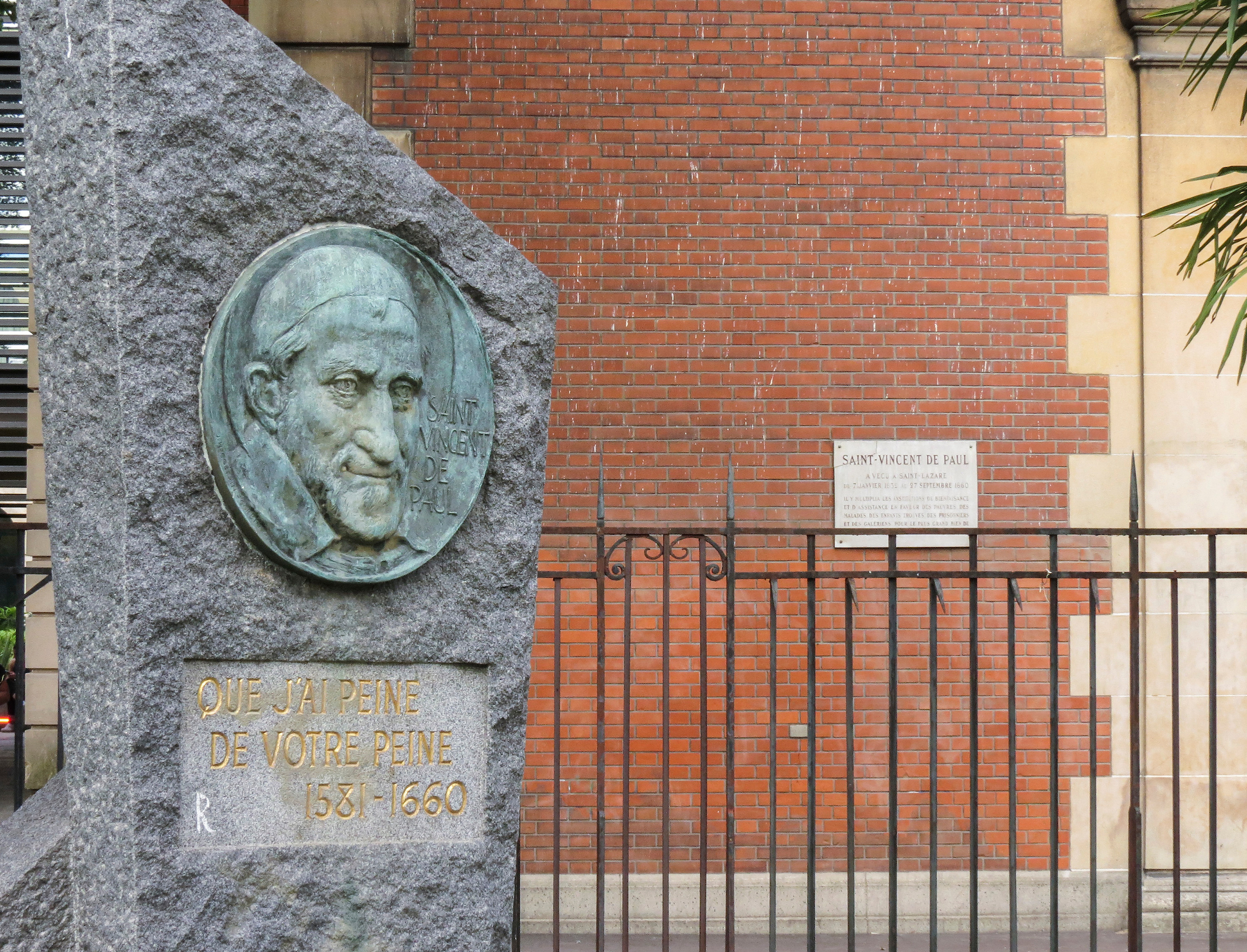 St. Vincent medallion statue outside of the Priory of St. Lazare in Paris. (DePaul University/Jamie Moncrief)
St. Vincent medallion statue outside of the Priory of St. Lazare in Paris. (DePaul University/Jamie Moncrief)
The new strategic plan, "Grounded in Mission: Engaging Students, Transforming Communities," will officially launch at the start of the next academic year. The plan indicates that in addition to strategies encouraging a better understanding of DePaul's Vincentian spirituality and history, the university will further develop its curricular engagement with the Catholic intellectual tradition.
The concept itself is one that is unfamiliar to many and vague to others. Newslines reached out to a trio of experts to learn more about this concept.
"DePaul's Catholic identity is only as vibrant as our curricular and research engagement with the Catholic intellectual tradition," says the Rev. Edward Udovic., C.M., vice president for Mission and Ministry.
"The term is a modern one that highlights the strand of the broader Catholic tradition that has to do with critical inquiry, dialogue and disputed questions," explains Scott Kelley, associate vice president for Mission Integration.
There are two core principles in the Catholic intellectual tradition. The first is that humans and the earth are integrated, while our understanding of them is limited, fragmented and partial. The second states knowledge serves our humanity.
"I do not think most people are aware of the Catholic 'intellectual' tradition," says the Rev. James Halstead, associate professor of Religious Studies. "In the United States, serious thinking about Catholicism, or any other religious traditions, often ends with the dawn of adolescence. Consequently, as young adults and older adults think about the great issues human existence - life, identity, love, work, ethics, forgiveness, aging, illness and death - they do so without the richness of earlier religious and philosophical thinkers."
According to Kelley, the Catholic intellectual tradition is enhanced at DePaul when faculty engage in interdisciplinary activities and when knowledge is applied to improve the human condition
"The highest aim for knowledge is for the sake of human development," Kelley says. "This is where Pope Francis comes in with integral ecology. We have to connect the dots between economics, the environment, society and culture. When Pope Francis uses the term 'integral ecology' he is doing precisely what Catholic theologians have done for centuries: he presents an integrated vision of reality."
Vision 2018 and prior strategic plans created structures and opportunities to bolster faculty practice of the Catholic intellectual tradition. They did this in part by encouraging interdisciplinary programs, research and team-teaching between faculty from different areas and colleges. This work includes the creation of the Center for World Catholicism and Intercultural Theology and the Catholic Studies department. An ongoing lecture series also celebrates interdisciplinary collaboration.
"DePaul welcomes people from all faith traditions because we believe the space for dialogue is beneficial for everyone," Kelley notes. "If Catholics are just talking among themselves, it's an impoverished understanding of everything. If I am a person of a different faith tradition and want to be in a space that is dialogical, open, vibrant and exploratory, DePaul is a great place. This is a hallmark of the Catholic intellectual tradition."
Kelley says the adjective 'Catholic' is perceived by some as narrowing and authoritarian at a university that is pluralistic and open. Yet DePaul presents the Catholic intellectual tradition as an interpretive framework for the academic enterprise. Vincentians value this tradition as a vital method for thinking about human questions that do not have one agreed upon answer.
"This is an important distinctive marker if we are going to be authentic to our heritage," he says, noting many DePaul faculty enter into dialogue with people from different perspectives. "This desire illustrates a core commitment of the Catholic intellectual tradition. This is not something that is imposed from the top."